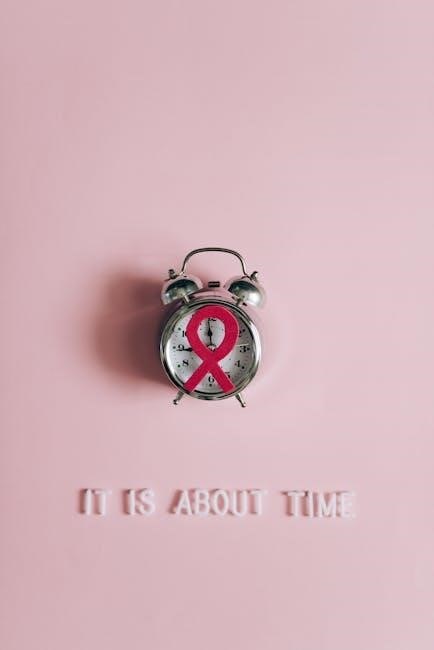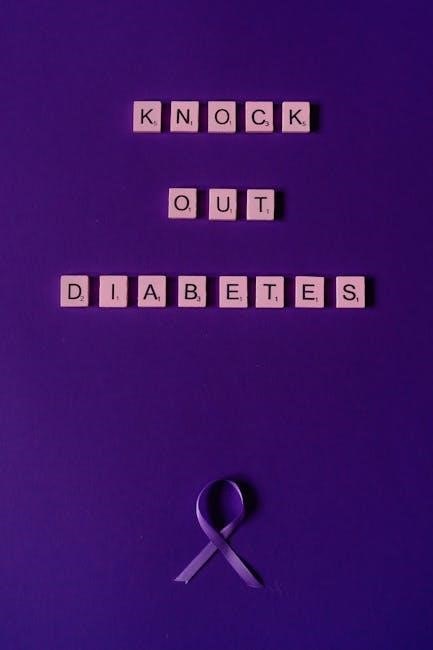The guiding principles aim to promote the quality use of medicines and medication management in the community, ensuring patient-centered care, interdisciplinary collaboration, and evidence-based practices․
Medication management in the community is a critical process that ensures safe, effective, and appropriate use of medicines․ It involves a coordinated approach to managing medications for individuals, particularly those with chronic conditions or complex needs․ The goal is to optimize health outcomes while minimizing risks such as adverse drug reactions or nonadherence․ Effective medication management requires patient-centered care, collaboration among healthcare providers, and ongoing education for both patients and caregivers․ It also relies on evidence-based practices and robust safety measures to monitor and address potential issues․ By promoting the quality use of medicines, medication management supports individuals to maintain independence and improve their overall well-being within community settings․ This introduction sets the foundation for understanding the principles and strategies that guide this essential healthcare practice․
Key Principles of Effective Medication Management
Effective medication management is grounded in several key principles that ensure safe, appropriate, and optimal use of medicines․ Patient-centered care is fundamental, focusing on individual needs, preferences, and health goals․ Interdisciplinary collaboration among healthcare providers, pharmacists, and caregivers is essential to coordinate care and prevent errors․ Evidence-based practice guarantees that decisions are supported by the latest research and guidelines․ Additionally, clear communication and education empower patients and caregivers to manage medications safely․ Regular monitoring and review of medication regimens help identify and address potential issues early․ These principles collectively enhance patient outcomes, reduce risks, and improve the overall quality of care in community settings․ By adhering to these guidelines, healthcare systems can ensure that medication management is both effective and patient-focused․
2․1 Patient-Centered Care
Patient-centered care is a cornerstone of effective medication management, emphasizing the involvement of patients and their caregivers in decision-making processes․ This approach prioritizes individual needs, preferences, and health goals, ensuring that care is tailored to each person․ By fostering open communication, healthcare providers can better understand patients’ concerns and expectations, leading to more personalized and effective treatment plans․ Patient-centered care also involves educating individuals about their medications, potential side effects, and proper administration techniques․ This empowerment helps patients take an active role in managing their health, improving adherence to medication regimens and overall health outcomes․ Additionally, respecting patients’ autonomy and involving them in shared decision-making fosters trust and satisfaction, which are critical for successful medication management in community settings․

2․2 Interdisciplinary Collaboration
Interdisciplinary collaboration is essential for effective medication management in the community, ensuring comprehensive and coordinated care․ This principle emphasizes teamwork among healthcare professionals, including doctors, nurses, pharmacists, and caregivers, to achieve safe and effective medication use․ By sharing knowledge and responsibilities, healthcare providers can address complex patient needs holistically․ Pharmacists play a key role in optimizing medication regimens, while nurses and caregivers often manage day-to-day administration․ Clear communication and mutual respect among team members are vital to prevent errors and improve patient outcomes․ Interdisciplinary collaboration also fosters a supportive environment where professionals can address challenges collectively, ensuring seamless care transitions․ Regular communication and documentation among team members are critical to maintaining continuity and safety in medication management․ This collaborative approach ultimately enhances the quality of care and promotes better health outcomes for patients in community settings․

2․3 Evidence-Based Practice
Evidence-based practice is a cornerstone of effective medication management in the community, ensuring that decisions are grounded in the best available research and clinical guidelines․ This principle involves integrating scientific evidence with clinical expertise and patient preferences to optimize care․ Healthcare providers should regularly review and apply up-to-date research to inform prescribing practices, dosing, and monitoring․ Evidence-based protocols help minimize medication errors and improve patient outcomes․ Additionally, this approach supports the safe and efficient use of resources, reducing unnecessary costs․ By adhering to evidence-based guidelines, healthcare professionals can ensure that patients receive care that is both effective and aligned with current standards․ Continuous education and training are essential to stay updated on the latest evidence, fostering a culture of quality and safety in medication management․ This practice is vital for maintaining trust and delivering high-quality care in community settings․
Roles and Responsibilities in Medication Management

Effective medication management in the community requires clear roles and responsibilities among all stakeholders․ Healthcare providers, including doctors, nurses, and pharmacists, are responsible for prescribing, dispensing, and monitoring medications․ Patients and caregivers play a crucial role in adhering to treatment plans and reporting any changes or side effects․ Community pharmacists act as intermediaries, ensuring safe dispensing practices and providing education․ Each stakeholder must communicate effectively to ensure seamless care coordination․ Clear delegation of tasks and accountability are essential to prevent errors and improve outcomes․ Regular training and updates on best practices are necessary to maintain competency․ Collaboration between healthcare teams, patients, and caregivers fosters a supportive environment for safe and effective medication use․ By understanding their roles, all parties can contribute to achieving optimal health outcomes and minimizing risks associated with medication use in the community․

3․1 Healthcare Providers
Healthcare providers play a pivotal role in medication management, ensuring safe and effective use of medicines․ Their responsibilities include conducting thorough patient assessments, prescribing appropriate medications, and monitoring treatment outcomes․ Providers must stay updated on evidence-based guidelines and emerging therapies to optimize care․ They are also accountable for educating patients about medication use, potential side effects, and adherence strategies․ Clear communication with patients, caregivers, and other healthcare professionals is essential to prevent errors and ensure continuity of care․ Healthcare providers must document medications accurately and review them regularly to avoid adverse interactions or unnecessary polypharmacy․ By prioritizing patient-centered care and interdisciplinary collaboration, healthcare providers are key to achieving positive health outcomes and minimizing medication-related risks in the community․
3․2 Patients and Caregivers

Patient and caregiver involvement is crucial for effective medication management․ Patients should take an active role in understanding their medications, adhering to prescribed regimens, and reporting any changes or concerns to healthcare providers․ Caregivers, when applicable, assist patients in managing their medications, ensuring safety, and maintaining organization․ Both patients and caregivers benefit from education on proper medication use, potential side effects, and strategies to avoid errors․ They should maintain a list of all current medications, including dosages and frequencies, and share this information with healthcare providers․ Active participation in shared decision-making and open communication with the healthcare team are essential for optimizing outcomes․ Patients and caregivers should also use tools like pill boxes or reminder apps to enhance adherence and safety, ensuring medications are used responsibly and effectively within the community setting․
3․3 Community Pharmacists

Community pharmacists play a vital role in medication management, ensuring safe and effective use of medications․ They provide education and counseling to patients and caregivers, helping them understand proper medication use, potential side effects, and strategies to avoid errors․ Pharmacists collaborate with healthcare providers to optimize treatment plans and address medication-related concerns․ They also monitor for medication adherence, potential drug interactions, and adverse effects, offering interventions to mitigate risks․ Community pharmacists often conduct medication reviews and use tools like medication management systems to support patients․ Their expertise in pharmacotherapy and accessibility within the community make them key contributors to improving health outcomes and reducing medication errors․ By fostering trust and communication, community pharmacists empower patients to take an active role in their care, ensuring medications are used responsibly and effectively․
Education and Training for Safe Medication Practices
Education and training are cornerstone strategies for promoting safe medication practices in the community․ Healthcare providers, patients, and caregivers must receive comprehensive training to manage medications effectively․ This includes understanding medication schedules, potential side effects, and strategies to minimize errors․ Patients should be empowered with clear, accessible information about their medications, while caregivers need guidance on administering drugs safely․ Community pharmacists play a key role in providing personalized education and addressing concerns․ Regular updates on evidence-based practices and new medications are essential for healthcare professionals to stay informed․ Educational resources, such as pill boxes, calendars, and digital reminders, can enhance adherence and safety․ By fostering a culture of continuous learning, communities can reduce medication errors and improve overall health outcomes․ Effective education ensures that everyone involved in medication management is equipped to handle responsibilities confidently and safely․

Monitoring and Safety Measures

Effective monitoring and safety measures are critical to ensuring safe medication practices in the community․ Healthcare providers must regularly monitor patients’ adherence to medication regimens and watch for potential adverse reactions or interactions․ Patients and caregivers should be encouraged to report any unusual symptoms or concerns promptly․ Community pharmacists play a vital role in reviewing medication lists and identifying risks during dispensing․ Regular follow-ups with healthcare providers are essential to assess treatment effectiveness and adjust plans as needed․ Additionally, tools such as pill boxes, medication calendars, and electronic monitoring systems can enhance adherence and safety․ Open communication between all stakeholders ensures that any issues are addressed promptly․ By implementing robust monitoring and safety measures, communities can minimize medication errors, reduce harm, and improve overall health outcomes for individuals managing medications․ These practices foster a proactive approach to medication safety․

